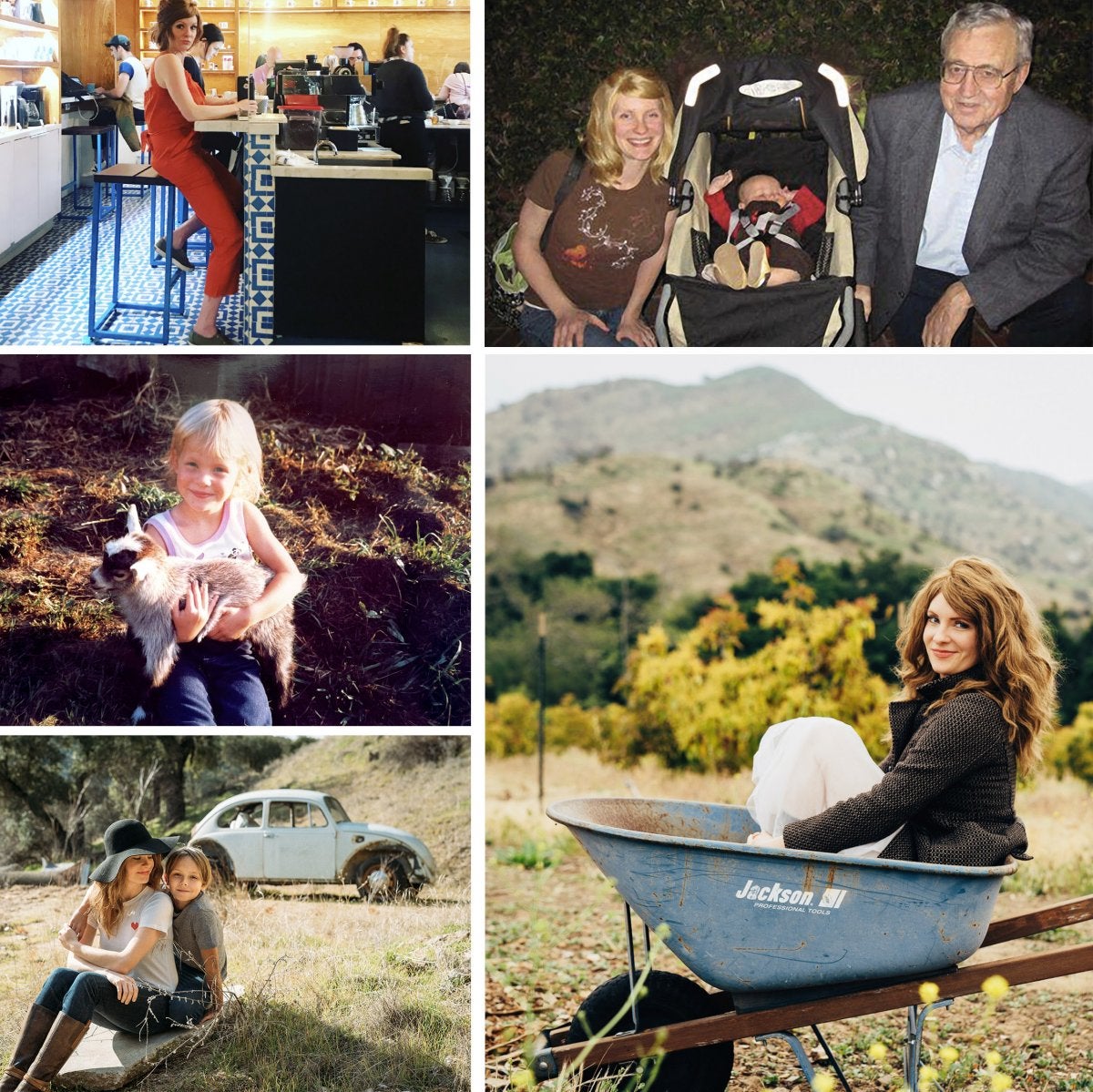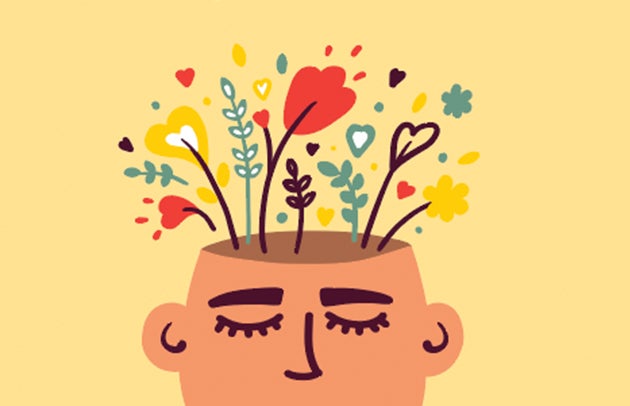
The Shy Alumna
It’s unlikely that anyone meeting Cat Moore before her late-20s would ever have imagined her holding the position she now has as USC’s director of belonging.
Throughout her childhood and early adulthood, Moore was painfully shy and found it hard to make friends and fit in. “I went to all kinds of different schools and really struggled to find my place,” says Moore, who was born in Canonsburg, a small steel town outside Pittsburgh in western Pennsylvania. “I spent a lot of my time up trees in the woods connecting with chipmunks because I just could not figure people out.”
She found connecting at high school to be so difficult that she dropped out and homeschooled herself alone in her bedroom in her junior and senior years.
She was still struggling to find friendship when she enrolled at USC Dornsife to pursue her dream of studying creative writing. But after taking a philosophy class her first semester with the late Professor of Philosophy Dallas Willard, she decided to become a philosophy major instead.
“Dallas was such a steady, warm, wise presence,” she says. “I was able to connect with him, and he was able to connect me to my deeper values and purpose, and help guide me. My life wasn’t working and I was desperately trying to understand these things, not only academically but personally.”
Moore knew that there were answers out there because she saw others succeeding at living the connected, joyful life she so longed to live herself. She chose to major in philosophy because she hoped it would help her find solutions to her difficulty in connecting with others. Her education at USC Dornsife became a personal quest to find the answers she felt she was missing.
“I was determined to crack the code of belonging,” Moore says.
“Through my studies, I realized it’s relationships, or what I call ‘the relational matrix of life,’ that is the foundation through which all other things happen. Relationships are the bedrock and the infrastructure of life.”
However, while she took satisfaction and comfort from the intellectual answers to her questions she had discovered at USC Dornsife, she still struggled to put what she had learned into practice. In fact, she says she continued to experience crippling shyness until she was 28, married and expecting a baby.
So, where did she finally find the elusive key to conquering her persistent loneliness?
Around the corner, in her local coffee shop.

FINDING CONNECTION Clockwise from top left: Cat Moore in a local café; with her mentor, USC Dornsife’s late Professor of Philosophy Dallas Willard, and her son, Noah; learning how to cultivate a network of friends; enjoying an affectionate moment with Noah; and nurturing a baby goat as a child. (Photos: COURTESY OF CAT MOORE; Portrait: Annie Hock.)
“I HAVE MY BOOKS AND MY POETRY TO PROTECT ME”
Moore had begun hanging out in cafes in high school because they were a place she could comfortably be with people without having to interact with them.
“I spent so much time in cafes and yet I had never once said hello to someone,” she says. “I think of the Simon and Garfunkel line, ‘I have my books and my poetry to protect me.’ That was me. I would stack books on my café table so no one would try to sit down and talk to me.”
Then, as a mother-to-be, she began hanging out every day at her local coffee shop in East Los Angeles, but despite her defensive fortress of books, something changed.
“Pregnancy is such a conversational icebreaker and as my belly grew, people started breaking the ice with me.”
This made Moore feel so anxious she would sometimes take refuge in the restroom. But after a couple of months, she found she was able to respond.
“I realized, ‘this is something I can do. I can look at people. I can say hello. I can let them sit down for a couple of minutes.’
“It was just that little window that I needed to realize that I could interact with people,” Moore says. “I felt like I had been living in a snow globe my whole life. And it really only took one crack to shatter the whole thing.”
Once Moore’s son, Noah, was born, she brought him with her every day to the cafe, prompting more customers to interact with the young mother.
Soon, people were lining up to talk to Moore for a few minutes — what she calls “the latte window” — while they waited for their coffee to brew.
“People would sit down not knowing me at all, spill their life story or tell me whatever it was that was weighing on them, burst into tears, not even know why, and get up and say, ‘Oh my gosh. Thank you so much for listening to me.’”
Moore says this happened over and over again with people from every possible walk of life: homeless people, CFOs, rock stars, veterans, single moms.
When she told Willard of this extraordinary transformation in her life, he responded, “Being with each other, as we are, where we are, is everything. But we organize our lives to death to avoid it because it requires that we slow down and risk being known.”
Moore says that when she received Willard’s blessing that what she was doing to interact and connect with others was indeed meaningful, she felt she had discovered her life purpose.
“I realized the dire human need to be heard and cared about in these extraordinarily simple, organic ways. In creating my own sense of belonging, I recognized everyone’s common need for this. And in providing it for others I was, in turn, providing it for myself and my son.”
Through her community work in the café, Moore devised and trademarked the methodology she had successfully used to crack the connection conundrum, a process she calls CLICK: Connect, Listen, Investigate, Communicate kindness and Keep in touch.
“ALL THE LONELY PEOPLE, WHERE DO THEY ALL COME FROM?”
Impressed by her community-building work and the research she had conducted on behalf of the Los Angeles Unified School District on the role of relationships in education reform, USC appointed Moore to be its director of belonging in 2018.
Moore says the creation of her post in USC’s Office of Religious and Spiritual Life represents a breakthrough for universities in their approach to student well-being. She credits Varun Soni, USC’s vice provost for campus wellness and crisis intervention and dean of religious life and the Reverend Jim Burklo, senior associate dean of religious life, for their pioneering vision and tireless work to make this role possible.
At a time when the nation is experiencing an epidemic of loneliness — with young adults particularly impacted, according to the USC Dornsife Center for Economic and Social Research’s Understanding Coronavirus in America survey — Moore’s work has never seemed more relevant.
At USC, Moore has created workshops to teach her CLICK method to connect with others — and oneself — in order to defeat loneliness. For alumni, she designed SPARK, a stand-alone workshop to help people facing loneliness over the holiday season. “The holidays are, honestly, always a difficult time for people, but we knew not being able to gather because of the pandemic was going to make it even harder,” she says. “So, we wanted to create a space for
people to reimagine what’s possible.”
Moore says it’s immensely important for USC to have taken the lead in creating a position such as hers.
“As far as we know, there is no other position of this kind at any other institution of higher education,” she says. “What USC is saying with this non-therapeutic, non-intervention
approach is that a sense of belonging and the experience of relational well-being are basic, healthy human needs and we’re going to create the conditions for those needs to be met.
Moore says that we have found the restrictions caused by the pandemic to be particularly challenging because our usual social structures have dissolved or been severely narrowed. This change has forced us to become acutely aware of our own experience, needs and resources.
“We’re having to pioneer a path through a new social landscape without a map, without the familiar tools, processes and teams,” she says. “It’s a big, exhausting ask, but ultimately, we are building new muscles, discovering new things about ourselves and each other, adapting to new mediums and forms of connection, and learning how to accept the challenge on the tiny, moment-by-moment scale.”
Asked what she hopes we can all learn from the difficult period we have traversed — and that many of us are still traversing — Moore says she hopes that we can gain clarity on what really matters to us and why.
“When the storm shakes the tree, many leaves fall off, but the roots dig down deeper,” she says. “I’m hoping we can all re-root in our cherished values and vision for our personal and shared lives and discover new ways forward together, starting with acknowledging that we all belong here, exactly as we are, and are irreplaceable.
“Whatever else is true of tomorrow, we can be sure that we’ll still have the power to create belonging for those around us by being present, listening and caring.”

Cat Moore’s Top Five Tips to Improve Mental Health
As vaccines provide hope and we start emerging from the restrictions of the pandemic, USC’s director of belonging provides her top five suggestions to boost well-being.
- All the elemental things are still asking for our attention right now, so practice good sleep, exercise/movement, nutrition, time in nature.
- Find a contemplative practice, such as journaling or meditation, to process your experience.
- Savor simple joys, allow yourself to be curious and in awe of life around you, and cultivate daily gratitude for the good you are still holding.
- Find simple ways to serve others and create belonging for those around you. Whether on screen or safely off screen, reach out to friends, family, neighbors and essential workers to see how they’re really doing, ask what they need and reassure them that they are not alone — we have gone through this, and will continue to get through this, together.
- Remind yourself that this is one season, not your whole life, and we are all navigating change together. If we can embrace the limits and opportunities of this unique time, we’ll be free to experience the new possibilities of it and maybe discover the seeds of a new, hopeful vision for our shared lives.